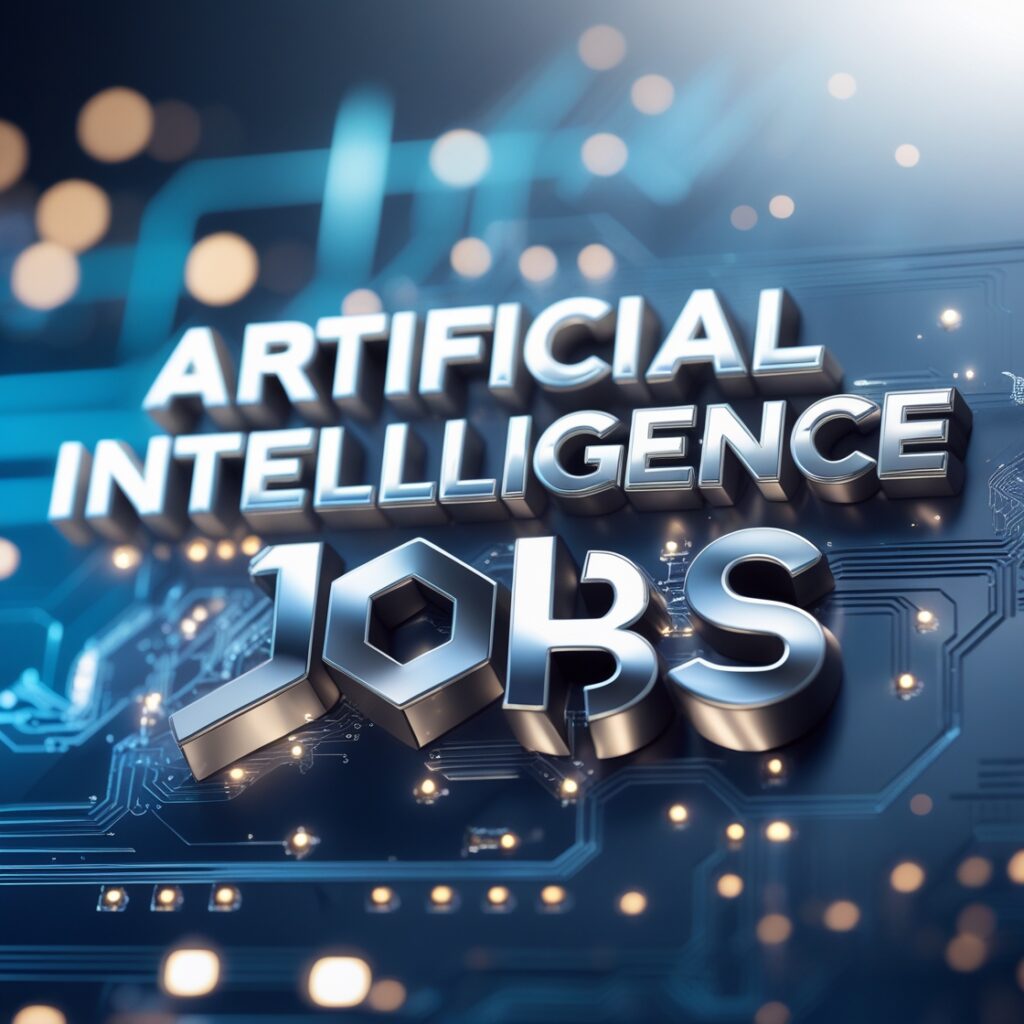Artificial intelligence (AI) has revolutionized the way we work and live. From smart home assistants to advanced robotics, AI is shaping the future across industries. But did you know it’s also creating numerous job opportunities? If you’re considering a career in this exciting field, Intelligence Jobs in AI may be your perfect match. Let’s explore everything you need to know about AI jobs, the skills required, and how you can become part of this growing domain.
Table of Contents
- Introduction to AI and Intelligence Jobs
- Types of Artificial Intelligence Jobs
- Essential Skills for a Career in AI
- Industries Hiring AI Professionals
- Future Trends in AI Employment
- How to Begin Your AI Career

1. Introduction to AI and Intelligence Jobs
Artificial intelligence combines computer science, data analytics, and machine learning to mimic human intelligence. The rise of AI is more than just a tech trend; it’s a career opportunity that offers innovation and lucrative rewards. Whether you’re just starting your career or looking to transition into tech, the demand for Intelligence Jobs in AI remains at an all-time high.
2. Types of Artificial Intelligence Jobs
The field of AI isn’t limited to coding alone there’s something for everyone. Here are some top AI-related jobs that cater to a variety of interests and skills:
- Machine Learning Engineer
Focuses on building and training algorithms to make predictions and automate systems. - Data Scientist
Combines statistical analysis and AI to uncover insights from data. - Natural Language Processing (NLP) Specialist
Works on AI tasks like chatbots, language translation, and voice recognition systems. - AI Product Manager
Manages AI projects to deliver solutions that meet business goals. - Robotics Engineer
Develops robots powered by AI for industrial, medical, or consumer purposes.
These Intelligence Jobs span across various niches, ensuring there’s an ideal role for both technical and non-technical professionals.
3. Essential Skills for a Career in AI
Employers in the AI sector look for a unique blend of technical expertise and soft skills. Below are the key skills needed to excel in Intelligence Jobs:
- Programming Skills
Languages like Python, R, and Java are essential for coding AI applications. - Knowledge of Algorithms and Data Structures
Strong understanding of algorithms is crucial for developing machine learning models. - Mathematics and Statistics
Proficiency in math, especially linear algebra and probability, is needed to understand AI models. - Problem-solving
The ability to innovate and solve real world challenges is valued highly in AI roles. - Communication
Translating complex AI solutions into simple language for stakeholders is key in most roles.
These skills are not only highly valued but will set you apart in this competitive job market.
4. Industries Hiring AI Professionals
AI professionals are in demand across various industries. Here are some sectors that frequently post Intelligence Jobs:
- Healthcare
AI is used for diagnosing diseases, personalizing treatment plans, and streamlining hospital management. - Finance
From fraud detection to predictive analytics, AI plays a big role in the finance sector. - Automotive
Self-driving cars and vehicle automation are made possible by AI technologies. - Retail and E-commerce
AI supports customer recommendations, inventory planning, and trend analysis. - Entertainment
AI in media helps with personalized viewing experiences and content creation.
With such diverse industries adopting AI, the opportunities truly are endless.
5. Future Trends in AI Employment
The scope of Intelligence Jobs continues to grow as advancements in AI technologies evolve. Here are some future trends to watch:
- AI Ethics Specialist
With growing concerns about the ethical use of AI, roles focusing on bias and fairness in AI will gain importance. - Edge AI Developers
Developers creating on-device intelligence for IoT devices and smartphones will be in demand. - AI-Powered Automation Jobs
Professionals in automation and optimization will remain crucial to scaling businesses. - Hybrid Roles
The blending of AI with traditional jobs, like AI-enhanced marketing or AI-driven HR, is likely to create hybrid roles.
Keeping an eye on these developments will help you future-proof your career in AI.
6. How to Begin Your AI Career
Are you ready to step into the world of Intelligence Jobs in artificial intelligence? Here’s how to get started:
- Learn the Basics
Start with online courses or certifications in Python, machine learning, and AI foundations. - Build Projects
Work on simple AI projects to strengthen your portfolio. - Network
Join AI meetups, forums, or LinkedIn groups to connect with industry professionals. - Internships or Entry-Level Roles
Gain experience through internships or entry-level jobs in AI. - Stay Updated
AI is a rapidly evolving field, so read research papers and stay informed about emerging technologies.
Remember, the first step is always the hardest, but it’s also the most rewarding.
Final Thoughts
Artificial intelligence is no longer the future—it’s here and now. Jobs in AI are revolutionizing industries, creating opportunities for innovators, and shaping how we live and work. Whether you’re passionate about technology, problem-solving, or driving global impact, exploring Intelligence Jobs in AI could be your ticket to an exciting and fulfilling career.
